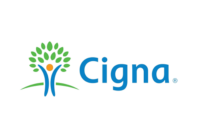The Four C's of addiction offer a clear framework to recognize addiction's impact: Compulsion describes the irresistible urge to engage in harmful behaviors; Cravings represent intense desires driven by brain changes; Consequences highlight the severe impacts on personal, social, and financial well-being; Control sheds light on the profound struggle to regulate behavior despite adverse effects. Understanding these can be crucial in seeking timely and effective treatment and support for recovery.
4 min to read
Understanding The Four C’s in Addiction
Addiction is a complex, multifaceted disorder that impacts millions of lives around the globe. It is characterized not just by physical dependency but by a profound psychological grip that manifests through the "4 C's": Compulsion, Cravings, Consequences, and Control. This article delves deeper into each component to provide a more comprehensive understanding of addiction, aiming to aid early recognition and encourage effective intervention.
Compulsion: The Uncontrollable Urge
Definition and Impact
Compulsion in the context of addiction describes an overwhelming urge to engage in addictive behaviors or substance use, despite the negative consequences it may bring. It represents a psychological drive where the individual feels an intense need to perform certain actions to achieve relief or pleasure. This compulsion often leads to repetitive behaviors that dominate an individual's life, pushing aside responsibilities, relationships, and personal health.
Neurological Changes
Addiction fundamentally alters the brain's reward system. Typically, this system rewards natural behaviors that are essential for survival with dopamine releases. However, addictive substances hijack this system, causing unusually high levels of dopamine during use. As addiction develops, the brain starts to require the substance or behavior to produce dopamine, diminishing the response to normal stimuli and increasing the dependence on the addictive agent to feel pleasure or even normal. Over time, this recalibrates the brain's reward threshold, leaving ordinary activities feeling less enjoyable and compulsive behavior as the primary source of pleasure. [1][2]

Cravings: The Overwhelming Desires
Understanding Cravings
Cravings are powerful, urgent desires that consume the thoughts of an addicted individual, compelling them toward substance use or addictive behaviors. These cravings are not only psychological—stemming from the memory of pleasure or relief provided by the substance—but also physiological, as the body reacts to the absence of the substance. They are reflecting a deep-rooted need that goes beyond simple desire.
Triggers and Management
Environmental cues, such as locations associated with substance use, and emotional triggers, such as stress, anxiety, or depression, can intensify cravings. Managing these involves strategies like avoiding known triggers, stress management techniques, and engaging in alternative, healthy activities. Therapies such as Cognitive Behavioral Therapy (CBT) and mindfulness practices are effective in helping individuals recognize these triggers and learn healthier response mechanisms.
Consequences: The Toll of Addiction
Physical and Psychological Impact
Physically, addiction can lead to severe health issues including:
- heart disease
- liver damage
- respiratory problems
- and neurological damage depending on the substance used.
Psychologically, addiction can lead to:
- mood disorders
- anxiety
- diminished cognitive functions
- and, in severe cases, psychosis. [3]
Social and Legal Repercussions
The social consequences of addiction might include deteriorating relationships, job loss, and social isolation. Legally, addictive behaviors can lead to consequences ranging from fines and arrests to long-term incarceration, especially when the addiction involves illegal substances or activities. [4]
Control: Loss and Recovery
Significance of Control
One of the most definitive signs of addiction is the loss of control over substance use or behavior. This means consuming more of the substance or engaging in the behavior more often than intended, and struggling to reduce usage despite the desire to do so. This loss is often due to impaired executive functions in the brain, which affects decision-making and self-regulation, making it extremely difficult for those suffering from addiction to abstain without help.
Restoring Control
Restoring control is possible with comprehensive treatment plans that may include medication-assisted therapy to ease withdrawal symptoms and cravings, coupled with psychotherapy to improve coping mechanisms. Behavioral therapies are also crucial, as they help retrain the brain to find satisfaction in healthy, non-addictive activities.

Treatment and Management
Comprehensive Approaches
Successful treatment programs typically integrate several approaches, combining medical treatment with psychotherapy and social support. Medications may be used to manage withdrawal symptoms and neurochemical imbalances, while psychotherapy can help address the underlying psychological triggers of addiction.
Role of Support Systems
Support systems play a critical role in the recovery process. This includes not only medical and psychological support but also the support garnered from family, friends, and peer groups like those found in 12-step programs or other recovery communities. These systems provide emotional support, practical help in avoiding triggers, and accountability, which are crucial for a successful recovery.
Conclusion
Recognizing and understanding the Four C's of addiction—Compulsion, Cravings, Consequences, and Control—can greatly enhance the effectiveness of interventions. Early detection and treatment increase the likelihood of successful recovery, allowing individuals to regain control and rebuild their lives.
Discussion
Safe, Nurturing, Healing
Tulua Health is More Than a Recovery Center
Safety and support form the cornerstone of recovery at Tulua Health. We offer a nurturing environment that extends beyond treatment. Our facilities boast modern amenities, ensuring privacy, comfort, and a range of supportive programs. Here, every aspect of our sober living homes is designed to provide you with a sanctuary that you can proudly call home.
We Accept Many Health Plans





It Starts here
Get a Free Health Coverage Verification
Wellness doesn't just happen. Our team of behavioral health specialists can help find the plan that is right for you. If you're ready for a new start, click below to submit a free health insurance verification request.



